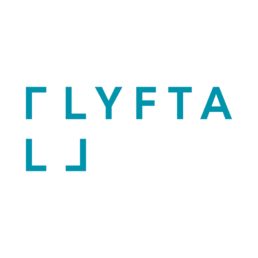
Written by Lyfta
Lyfta boosts classroom engagement by connecting with students on an emotional level and sparking interesting discussions. Students are able to connect with real human stories introducing them to diverse cultures and perspectives which builds knowledge and cultural capital.
A few weeks ago I had the pleasure of being part of a panel of esteemed colleagues at the Big Virtual Conversation as part of the series of events organised by #DiverseEd . The session, hosted by the dynamic duo, Hannah Wilson and Bennie Kara, was a chance for us to hear from a range of speakers from the education sector. I had the opportunity to speak about the power of human stories to help to bring diversity into the curriculum, and the key themes are outlined in this blog post.
Asking someone where they’re from can come from curiosity but can also serve to make people feel alienated, by placing undue emphasis on their right to belonging. If you ask someone instead, “tell me about yourself, what’s your story?” it invites them to craft their response and weave their answer so it belongs anywhere and on their own terms.
When you tell your own story you can start to make sense of the connections and links that bring the elements together. I’ve been thinking about the many threads and moments in my own life that seem to have led me to where I am now.
Human stories have always fascinated me. They led me to study social anthropology at university and gave me a reason to explore beyond the pages of books, leading me to buy a year’s open ticket and accidentally spend some ten years abroad, learning, working, teaching and continuing to weave into my story, stories and histories with new threads of different hues, that had echoes of my ancestors. I learned new concepts and perspectives every time someone told me a new story.
During this time I ended up learning Hebrew, which taught me words that just don’t exist in English, opening me up to new cultural concepts and helping me see the world in new and different ways. One of my favourite words with no English equivalent is the word ‘Firgun’ (פירגון)said ‘fear-goon’. This one word describes genuine, unselfish delight or pride in the accomplishment of the other person – or a generosity of spirit, an unselfish, empathetic joy that something good has happened, or might happen, to another person. It is similar to the South African concept of Ubuntu, I am because you are. Your success is our collective joy. And in the same way, your story, is our collective story.
I believe that human stories are more important than ever. The world events of the past 6 months during the global pandemic have brought this home to us in unique and often tragic ways. Like many in the education sector, I’ve been lucky to see the importance of my work’s potential to harness the power of humanity for the common good, even at this challenging time. At Lyfta, we capture human stories in the form of powerful short films and then turn these into 360 degree explorable, immersive and interactive spaces in which teachers and their students can learn about people, places, values and skills.
While we are restricted from close human interaction and travel, these human stories seem more precious than ever. In the words of one student, Thomas, with Lyfta’s immersive platform you are “able to instantly teleport yourself halfway across the world while staying on the same spot and see how things are for real”.
One important aspect of schools’ offering for young people in their care is the element of broadening their horizons, and instilling a sense of cultural capital through the music, texts, art and experiences that are included in the curriculum, such as school trips. We know that even in normal times, many children will not have the opportunity to go far beyond their own postcode.
Teaching and learning through human stories using Lyfta can be a powerful way to ensure that students have experience of the world as part of their entitlement to cultural capital. This can be important also as a way to teach an understanding of the protected characteristics, and show how diversity and equality are promoted within our schools.
We have seen that teaching and learning through immersive human stories can bring breadth, depth and meaning to concepts, taking them from the realm of information to the realm of deeper knowledge. Exploring Lyfta’s storyworlds enables teachers to unlock critical thinking skills in their students and helps them understand complex concepts, they were not aware of previously. Engaging in learning through these powerful stories can provide important breadth. Leading authority on learning, Chris Quigley, describes this breadth as both cultural capital ie. the background knowledge of the world students need for inference and understanding, and also the range of situations students need to grow confidence in the threshold concepts. These threshold concepts are understood as concepts that ‘open up a new and previously inaccessible way of thinking about something’.
Our vision at Lyfta is to ensure that by the time a child completes their education, they will have visited every country in the world, and will have met at least one person in every place they go. Right now, you can take your students all the way to an Ethiopian village to visit Mesgana and Gebeyeu in their family home, or hop over to Malte’s garden in Berlin to see how honey is made, or pop down to Cornwall to litter-pick with Rob on the beach, and so much more.
We have a limited number of places available on our funded CPD training webinars as part of the Connecting Classrooms through Global Learning programme. Participants who successfully complete the course will receive free access to the full range of Lyfta content and resources for a whole term.
Try Lyfta for free here: https://www.lyfta.com/

